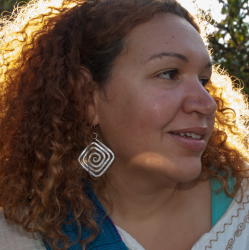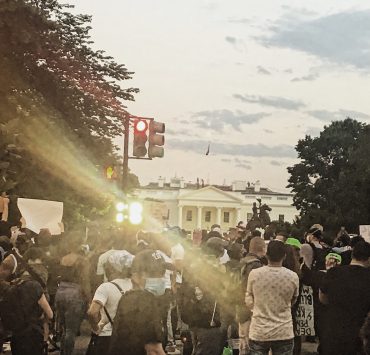
Writing at the turn of the twentieth century, Arthur Schomburg, the black Puerto Rican scholar and bibliophile, advocated for the creation of departments of Black History, and for the formation of Black historians as a way to contrast the lies, the silences and the outright violence produced about black and brown people in the university. I have written on multiple occasions about the significance of Schomburg’s proposal to re-introduce that which “slavery took away:” the possibility of humanity and belonging as a prelude to Ethnic Studies — Black, Latinx, Indigenous, Asian, Islamic — as an early articulation for an anti-colonial, anti-white supremacist space of knowledge production and learning.
Schomburg was a black Puerto Rican man, an idealist and an entrepreneur who very much believed in the possibility of freedom and equality for all people. When he migrated to New York City at the end of the nineteenth century, he did so because he wanted to join the revolutionary efforts to free Puerto Rico from Spanish colonial exploitation.
In New York, however, he soon found himself in the “belly of the beast”, to borrow José Martí’s famous phrase. U.S. colonialism swallowed up Puerto Rico and spat him out a non-citizen migrant, a different kind of black man. It was hard enough to be a black man in the world, but to be a black migrant? That was an insurmountable burden. Schomburg, despite his incredible success, always lived in between two forms of unbelonging: black and migrant. Although Schomburg did not define himself as an Afro-Latino or Latinx, partly because those were not terms available to him at the turn of the twentieth century, his experience with race, migration and unbelonging are relevant to many of us who identify as Black or brown Latinx today. Whether born in the U.S. or elsewhere, our racialized bodies, our Hispanic last names, our accents, and our immigrant experiences continue to exclude many of us from Americanness: We are Latinx, Latina/os, and in this country, in this political climate, that is a mark of unbelonging and exclusion.
Reading Schomburg’s work, however, one cannot help but feel a flash of optimism and hope. This man was ahead of his times: He articulated black diaspora before the term existed. He connected the dots of U.S. colonialism in the Pacific and the Caribbean, marking those connections as producing second-class citizenship as early as 1901. And, he saw that the only way to a future of “racial integrity” was through transnational forms of anti-colonial solidarity grounded on knowledge, on history, on the possibility of another way of learning. Schomburg wrote:
The white scholar’s mind and heart are fired because in the temple of learning they are told how on March 5, 1770 the Americans were able to beat the English; but to find Crispus Attucks it is necessary to go deep into special books…Where is our historian to give us our side of view? We need in the coming dawn the man who will give us the background of our future; it matters not whether he comes from the cloisters of the university or from the rank and file of the fields.
Schomburg dedicated his life to building the largest archive of black histories and left it there for us to build upon it, to write books with and about, to teach from, to fuel the black scholar’s mind. His work, his life, his archive were built on the hope that we would grab the torch and keep on moving. Some of us have tried.
Over the past decade of teaching Latinx Studies at various institutions—Dartmouth College, the University of Georgia, Harvard University, Freedom University— I have seen what Schomburg meant by “kindling the torch of knowledge and racial integrity.” Semester after semester, as my courses filled with first-generation, mostly Latinx students of different racial, national and economic backgrounds, coming from both the “cloisters of the university and the rank of the fields” I marveled at their empowerment after reading, thinking and producing work through the frameworks of anti-colonial Latinx and Ethnic Studies. The dozens of letters and emails from students over these years with words like: “This class saved me” or “reading Josefina Baez changed my life” have been tangible reminders of the importance of doing anti-colonial Latinx and ethnic studies work, not only in terms of building the “background of the future” and “kindling the torches” of knowledge as Schomburg hoped we would, but also in creating spaces for survival and community within the colonial, violent structures of higher education which continues to produce Latinx lives, Latinx knowledge, Latinx faculty and Latinx students as non-essential, as extras in the perfectly orchestrated machinery of the corporate university system.
The Covid-19 crisis has brought to light a multiplicity of crises—the fragility of capitalism, the precariousness of our medical system, the inadequacy of our public health system, the insufficiency of social services unable to adequately provide relief from food stamps to unemployment benefits. Meaning, it has also brought to light—for those who had the privilege of not knowing—the enormous inequality that exists in this world between those who have a lot and those who do not. Ironically, the latter now includes part of a new category of human beings we are calling “essential”: workers who must continue to risk their lives and die in order to provide the services the rest of us need to survive. It is no surprise to anyone that these workers are Latinx, that they are migrants, that they are Black, that they are poor. They are also my students’ parents, my students’ brothers, my students’ sisters. They are my students.
The university has not been immune to the Covid-19 pandemic. As a corporation, as part of the capitalist machinery, the university has seen many loses all too quickly. Hires have been frozen, workers laid off, aid cut; we are all bracing ourselves for the worse that is yet to come. Even as they face financial stress, universities continue to assure students that the integrity of their education will be preserved, that knowledge-making and learning will continue.
At Harvard, where I created and direct the Latinx Secondary, a graduate student certificate that currently serves 24 students from across the university, I see the impact up close. The years of precarity and neglect of Latinx Studies, paired with tenure denials, inability to retain Latinx faculty and the freeze on hire has left my students without a structured Latinx studies program beginning next fall, despite the university’s commitment to “excellence in learning and teaching.” Likewise, across the United States, searches in Ethnic Studies and Latinx Studies have been cancelled or put on hold. No one protests. We say nothing. We are amidst a crisis and there is nothing that we can do. Students must adapt, study something else, find a way to learn on their own. Teach themselves their own histories. It is a crisis. It is a pandemic. People are dying and Latinx Studies is non-essential.
Except it is.
Before the pandemic there was another crisis
Anti-colonial ethnic studies— Black, Latinx, Indigenous, Asian, Islamic Studies— is charged with the immeasurable task of filling the gaps left by all the other fields of knowledge, with creating a learning environment that contrasts the supremacy of whiteness, inequality, racism, and exclusion that dominates our canons, libraries, and archives. Through the lens and the framework of ethnic studies, future doctors, lawyers, teachers, public servants and business people learn a more ethical, more just way to live, to create, to serve one another. What could possibly be more essential to our humanity as the very people represented in the fields of ethnic studies are dying, as their bodies are sent to the front lines to be sacrificed? What could possibly be more essential to our universities than to provide the opportunity for learning about this crisis from within, from the very experiences of those who are most affected by it, from the knowledge that comes from the “file of the fields”?
Before Covid-19, before March 2020, college students across the United States mobilized in support of ethnic studies, in demand of better conditions for graduate students and in protests against racism, misogyny and inequality across campuses. At Harvard, students demanded for ethnic studies programs and courses. They also demanded clarity around tenure denials of professors of color, including my own tenure denial. Cross-country, at Stanford, students asked “Who is teaching us?” in an effort to raise awareness about the lack of faculty diversity on campus. At Yale, students were demanding departmentalization of ethnic studies, faculty resources, and clarity around tenure denial of Latinx studies faculty. The list could go on and on, beyond the Ivy League. As we celebrated the fiftieth anniversary of the creation of the first ethnic studies Program in San Francisco State, other schools were still fighting to retain the single faculty member devoted to ethnic studies scholarship, to hire a second person, to create at least a minor in the field. All the asks fell on the deaf ears of the institutions because like our people, our field is deemed non-essential.
As I experienced in my own skin the disavowal of Latinx Studies (and by extension ethnic studies) in the very institution where I’d worked to build it for seven years, I went back to Schomburg, to his call for “kindling the torches of knowledge”, for building departments and programs, for teaching against the white supremacy of the university even if from within the belly of the beast. I continue to wonder, where did we go wrong? How are we, one hundred years later, STILL having this fight? Why do we STILL need to convince our institutions that this knowledge is indeed essential, that our students do matter, that our work has value in this world?
Dylan Rodriguez said it best: “Ethnic Studies represents some of the most transformative, epistemologically and theoretically challenging, critically and publicly engaged work to emerge from the academy in the last half century. In producing such field—and academy—altering work, Ethnic Studies represents the elite research university’s (e.g. Harvard et. al.’s) antithesis.” How can the university promote, reward and support a field whose very purpose is to dismantle the structures on which the very institution is grounded? Like Schomburg at the turn of the twentieth century, Latinx Studies and Ethnic Studies live within the belly of the beast. As scholars in these fields, we produce knowledge, create spaces, and teach in contradiction to our institutions, to the colonial, oppressive structures of the white-supremacist university. As such, our work, our people, our students, are chewed up and spat out if we are not subtle enough, if we upset the belly, if our work becomes too essential. So where do we go from here? How do we continue amidst this violence?
Let us go back to Schomburg. One of his most incredible propositions was that of “a nation without a nation,” a concept we now understand as diaspora. For Schomburg, however, the idea of having this transnational solidarity nation, did not mean he gave up his place within the U.S. American nation. He strived to create an alternative place of belonging as he continued to push within the belly, making space for himself amidst the discomfort. We need to do the same. If I have learned anything over the past decade, and particularly, over this past year, it is to not trust institutions, to not believe in the systems that were not ever meant to sustain me. It is an insurmountable task to work, to care, to teach and to produce knowledge while living and working through this violence. And yet we do, and we must. But we must also find other ways, we must also create our own “nations without nations,” our own institutions without institutions, our collectives of joy and learning where our work and our lives are always properly recognized as essential.
Image Credits: Jack Sem
Lorgia García-Peña is a Professor of Latinx Studies at Tufts University, the co-founder of Freedom University Georgia, and the author of three books: Translating Blackness (2022), Community as Rebellion (2022) and The Borders of Dominicanidad (Duke 2016). She is the co-editor of the Texas University Press series, Latinx: the Future is now and the co-director of Archives of Justice. She writes and teaches in English and Spanish about the intersections of blackness, colonialism and migration, centering Black Latinx lives.







